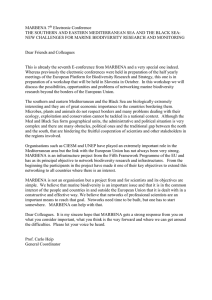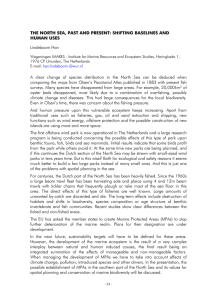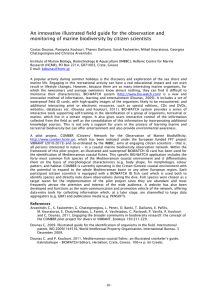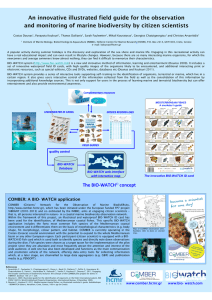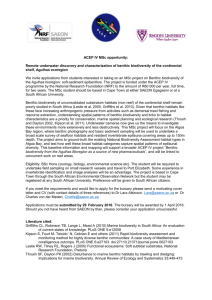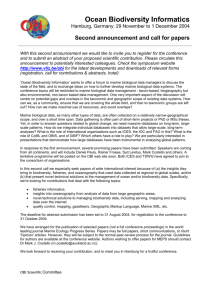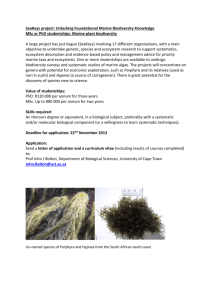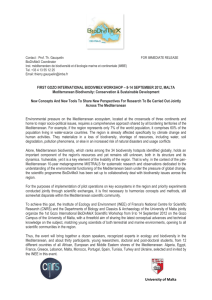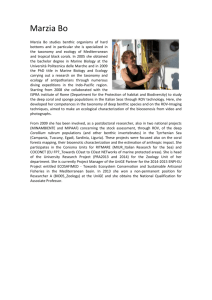Eaunergie
advertisement
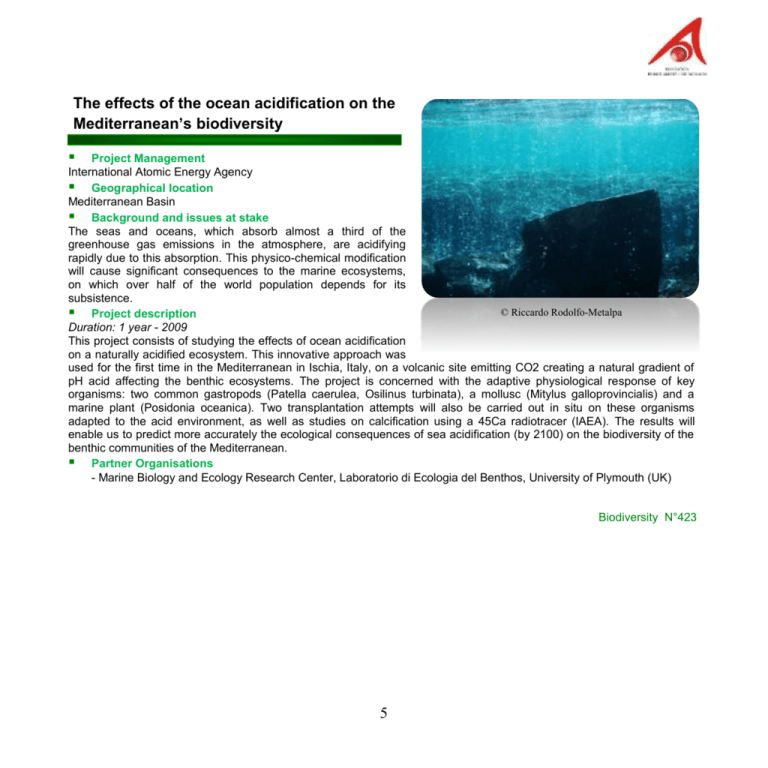
The effects of the ocean acidification on the Mediterranean’s biodiversity Project Management International Atomic Energy Agency Geographical location Mediterranean Basin Background and issues at stake The seas and oceans, which absorb almost a third of the greenhouse gas emissions in the atmosphere, are acidifying rapidly due to this absorption. This physico-chemical modification will cause significant consequences to the marine ecosystems, on which over half of the world population depends for its subsistence. © Riccardo Rodolfo-Metalpa Project description Duration: 1 year - 2009 This project consists of studying the effects of ocean acidification on a naturally acidified ecosystem. This innovative approach was used for the first time in the Mediterranean in Ischia, Italy, on a volcanic site emitting CO2 creating a natural gradient of pH acid affecting the benthic ecosystems. The project is concerned with the adaptive physiological response of key organisms: two common gastropods (Patella caerulea, Osilinus turbinata), a mollusc (Mitylus galloprovincialis) and a marine plant (Posidonia oceanica). Two transplantation attempts will also be carried out in situ on these organisms adapted to the acid environment, as well as studies on calcification using a 45Ca radiotracer (IAEA). The results will enable us to predict more accurately the ecological consequences of sea acidification (by 2100) on the biodiversity of the benthic communities of the Mediterranean. Partner Organisations - Marine Biology and Ecology Research Center, Laboratorio di Ecologia del Benthos, University of Plymouth (UK) Biodiversity N°423 5
